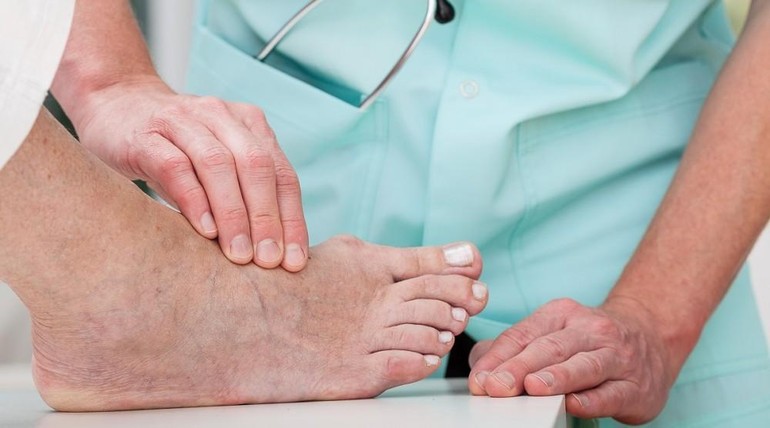The Centers for Advanced Orthopaedics is redefining the way musculoskeletal care is delivered across the region with locations throughout Maryland, DC, Virginia and Pennsylvania.
4 Common Myths About Bunion Surgery

Are you disrupted by the discomfort and pain of bunions? If so, you may have come across various misconceptions surrounding bunion surgery. At The Orthopaedic Foot & Ankle Center, we believe in empowering our patients with accurate information before considering if bunion surgery is right for them. In this blog post, we debunk four common myths about bunion surgery, providing you with the clarity you need to make informed decisions about your foot health.
Myth #1: Bunion Surgery Is Invasive and Painful
One common myth about bunion surgery is that it involves extensive incisions, lengthy recovery periods, and excruciating pain. However, advancements in medical technology have revolutionized bunion surgery, making it more minimally invasive than ever before. Today, procedures such as minimally invasive bunion surgery allow for smaller incisions, reduced tissue trauma, and faster recovery times. With appropriate pain management techniques, most patients report manageable discomfort rather than unbearable pain.
Myth #2: Bunion Surgery Guarantees a Long and Taxing Recovery
Another common misconception is that bunion surgery involves a lengthy and taxing recovery process. While it is true that each patient's healing time may vary, minimally invasive bunion surgeries focus on minimizing downtime. With minimally invasive techniques, patients often experience quicker recoveries, allowing them to return to their daily activities sooner. Our team of experienced orthopedic surgeons and foot specialists will guide you through a comprehensive post-surgical plan, including pain management, physical therapy, and gradual return to normal activities.
Myth #3: Bunion Surgery Only Provides Temporary Relief
There is a sustained belief that bunion surgery only offers temporary relief, and bunions will inevitably return. While no surgical procedure can guarantee absolute prevention of future bunion formation, the minimally invasive technique has a very low reoccurrence rate. "A bunion forms when the big toe joint is out of alignment, causing it to turn toward the smaller toes and creating a bump at the base of the big toe. Prior bunion procedures focused on shaving down the bump of a bunion. However, this did not address the root cause of the bunion and there was a high recurrence rate with these early procedures. In minimally invasive bunion surgery, the bone is realigned to straighten the big toe, addressing the main cause of the bunion. As a result, this procedure is associated with a very low bunion recurrence rate." said Dr. Daniel Cuttica, orthopedic surgeon at The Orthopaedic Foot & Ankle Center. Following your surgeon's post-operative instructions and maintaining good foot care practices can help maximize the long-term benefits of bunion surgery.
Myth #4: Bunion Surgery Is Reserved for Severe Cases Only
Many individuals mistakenly believe that bunion surgery is reserved for severe and debilitating cases. However, bunion surgery is not solely limited to extreme conditions. In fact, early intervention and proactive treatment can prevent bunions from progressing to a more advanced stage. Consulting with a qualified orthopedic physician can help determine the most appropriate course of action, which may involve surgical or non-surgical interventions depending on the severity of your bunion.
Don't let myths and misconceptions hold you back from seeking effective treatment for your bunions. The Orthopaedic Foot & Ankle Center is committed to providing you with accurate information and personalized care. Minimally invasive bunion surgery can be a game-changer, offering relief from pain and improved foot function. Remember, every bunion case is unique, and seeking professional advice is essential to determine the most suitable treatment approach. Don't let bunions dictate your life – take the first step towards healthier, pain-free feet today. Call us or schedule online to book your appointment today.